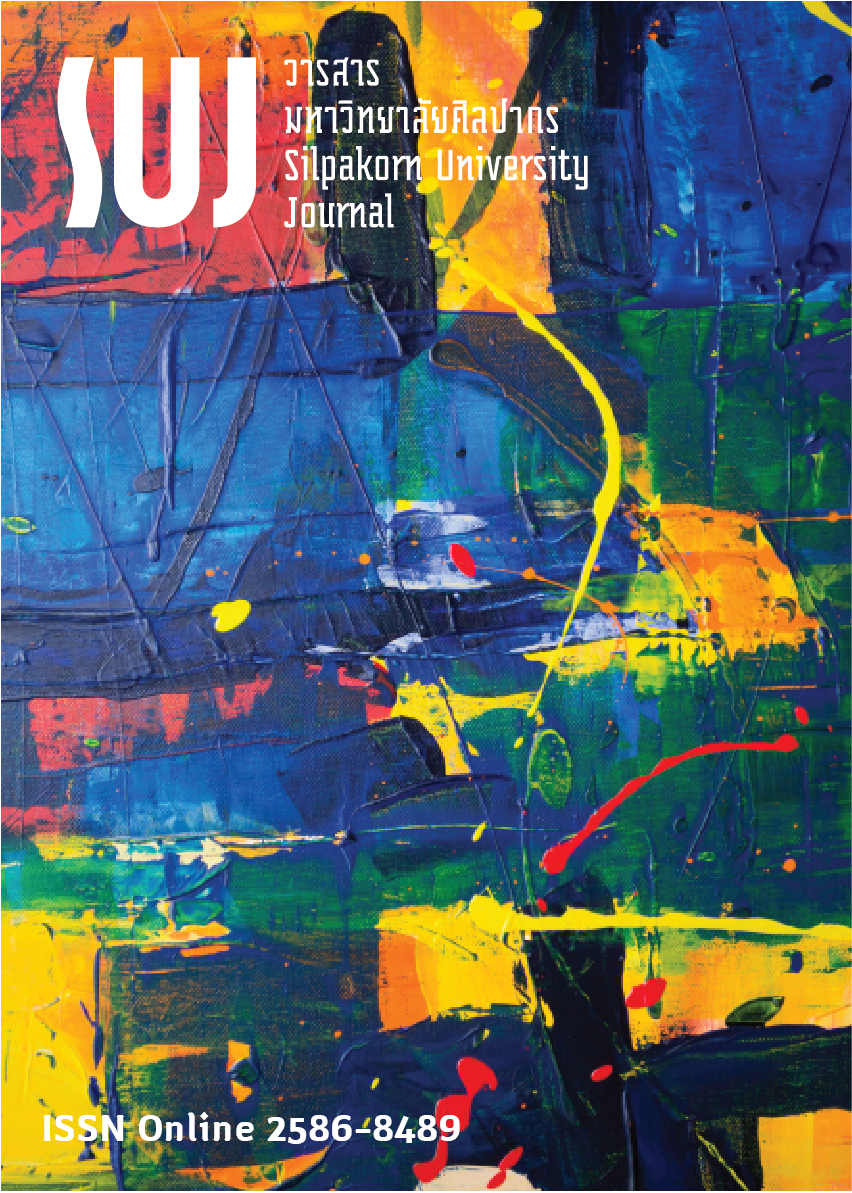สภาพการจัดการเรียนรู้วิชาวิทยาศาสตร์ที่ส่งเสริมทักษะการแก้ปัญหาอย่างสร้างสรรค์ สำหรับนักเรียนชั้นประถมศึกษาปีที่ 4 (The circumstances of science learning management to enhance the creative problem-solving skills for the 4th grade students)
Main Article Content
Abstract
การวิจัยในครั้งนี้มีวัตถุประสงค์เพื่อ 1) ศึกษาสภาพการจัดการเรียนรู้ในวิชาวิทยาศาสตร์ที่ส่งเสริมทักษะ การแก้ปัญหาอย่างสร้างสรรค์สำหรับนักเรียนชั้นประถมศึกษาปีที่ 4 ประชากรคือครูผู้สอนวิชาวิทยาศาสตร์ ชั้นประถมศึกษาปีที่ 4 จากโรงเรียนในสังกัดสำนักงานเขตพื้นที่การศึกษาประถมศึกษาศรีสะเกษ เขต 1 กลุ่มตัวอย่างคือ ครูผู้สอนวิชาวิทยาศาสตร์ชั้นประถมศึกษาปีที่ 4 จำนวน 90 คน ได้มาโดยการสุ่มแบบหลายขั้นตอน เครื่องมือที่ใช้ในการเก็บรวบรวมข้อมูล คือ แบบสอบถามสภาพการจัดการเรียนรู้วิชาวิทยาศาสตร์สำหรับครูผู้สอน วิชาวิทยาศาสตร์ระดับชั้นประถมศึกษาปีที่ 4 2) เพื่อวัดทักษะการแก้ปัญหาอย่างสร้างสรรค์สำหรับนักเรียน ชั้นประถมศึกษาปีที่ 4 ประชากรคือ นักเรียนชั้นประถมศึกษาปีที่ 4 จากโรงเรียนในสังกัดสำนักงานเขตพื้นที่ การศึกษาประถมศึกษาศรีสะเกษ เขต 1 กลุ่มตัวอย่าง คือ นักเรียนชั้นประถมศึกษาปีที่ 4 จำนวน 355 คน ได้มาโดยการสุ่มแบบหลายขั้นตอน เครื่องมือที่ใช้ในการเก็บรวบรวมข้อมูลคือแบบวัดทักษะการแก้ปัญหา อย่างสร้างสรรค์ สำหรับนักเรียนชั้นประถมศึกษาปีที่ 4 สถิติที่ใช้ในการวิเคราะห์ข้อมูล ได้แก่ ค่าเฉลี่ย ค่าส่วนเบี่ยงเบนมาตรฐาน ค่าเปอร์เซนต์ไทล์ และค่า T- score ผลการวิจัยพบว่า 1) สภาพการจัดการเรียนรู้วิชาวิทยาศาสตร์ของครูผู้สอนวิทยาศาสตร์ภาพรวมอยู่ในระดับปานกลาง ค่าเฉลี่ยความคิดเห็นด้านที่ต่ำที่สุดคือ ด้านเป้าหมายของการจัดการเรียนรู้ 2) ทักษะการแก้ปัญหาอย่างสร้างสรรค์สำหรับนักเรียนชั้นประถมศึกษาปีที่ 4 พบว่า อยู่ในระดับพอใช้จนถึงอ่อนมาก
The aim of the study is two-fold. First, to study conditions of learning management of science that enhance creative problem-solving skills. The population was 4th-grade science teachers from schools under the Office of Sisaket Primary Educational Service Area 1. The samples randomized by multi-stage random sampling were 90 4th-grade science teachers. The instrument was the circumstances of science learning management questionnaire for 4th-grade science teachers. Second, it was to study the creative problem-solving skills test for 4th-grade students. The population was 4th-grade students from the schools under the Office of Sisaket Primary Educational Service Area 1. The samples randomized by multi-stage random sampling were 355 4th-grade students. The instruments were the creative problem-solving skills test for 4th-grade students. The statistics were mean, standard deviation, percentile value, and T-score. The study revealed that 1) The conditions of the learning management of science for science teachers were at a moderate level. The lowest mean score is the goals of learning management, and 2) The mean score of creative problem-solving skills of 4th-grade students at a moderate to very weak level.
Downloads
Article Details
References
Department of Academic Affairs, Ministry of Education. (1992). Creativity, teaching theories and principles Evaluation of results (ความคิดสร้างสรรค์ หลักการ ทฤษฎีการเรียนการสอน การวัดผลประเมินผล) (2nd ed.). Bangkok: Teachers Council of Thailand, Lat Phrao.
Dick, W. & Carey, L. (1996). The Systematic Design of Instruction (4th ed.). New York: Harper Collins College Publishers.
Institute of Behavioral Sciences Research Institute. (2015). Creative Problem Solving Management Part 1 Creative Problem Solving (CPS) (การจัดการเรียนรู้แบบการแก้ปัญหาอย่างสร้างสรรค์ ตอนที่ 1 Creative Problem Solving (CPS). [Online]. Retrieved February 25, 2019 from https://candmbsri.wordpress.com/2015/
Khay-nil, Sunee., Dechsri, Preechan. & Pramojey, Ampalika. (2008). Knowledge and scientific competency for the world of tomorrow: the evaluation report of learning from PISA 2006 (ความรู้และสมรรถนะทางวิทยาศาสตร์ สำหรับโลกวันพรุ่งนี้ : รายงานผลการประเมินผลการเรียนรู้จาก PISA 2006). Bangkok: Seven printing group.
Ministry of Education. (2008). Core Education Curriculum, Basic Education BE 2551 (หลักสูตรแกนกลางการศึกษาขั้นพื้นฐาน พุทธศักราช 2551). Bangkok: The Agricultural Cooperative Assembly of Thailand Limited.
Ministry of Education. (2017). Indicators and core learning strands of science learning strand (revised edition 2017) according to the core curriculum of basic education, BE 2551 (1) (ตัวชี้วัดและสาระการเรียนรู้แกนกลางกลุ่มสาระการเรียนรู้วิทยาศาสตร์ (ฉบับปรับปรุง พ.ศ. 2560) ตามหลักสูตรแกนกลางการศึกษาขั้นพื้นฐาน พุทธศักราช 2551(1)). Bangkok: Agricultural Cooperative Assembly Printing Press of Thailand Limited.
Petch-aen, Yanee. (2014). A study of creative problem solving process of food and health lesson in health education course for grade 9 students (การศึกษากระบวนการแก้ปัญหาอย่างสร้างสรรค์ เรื่อง อาหารกับสุขภาพ รายวิชาสุขศึกษาสำหรับนักเรียนชั้นมัธยมศึกษาปีที่ 3). Master’s dissertation, Silpakorn University, Bangkok, Thailand.
Phattiyathani, Somnuk. (2010). Educational evaluation (การวัดผลการศึกษา) (7th ed). Kalasin: Prasarn Printing.
Treffinger, D. J. (2008). A New Renaissance? Preparing Productive Thinkers for Tomorrow’s World. Creative Learning Today, 15(4): 1.
Yuanyong, Chockchai. (2007). Using science concepts Technology and society in managing science learning (การใช้แนวคิดวิทยาศาสตร์ เทคโนโลยีและสังคม ในการจัดการเรียนรู้วิทยาศาสตร์). Academic, 10(2): 29-34.


